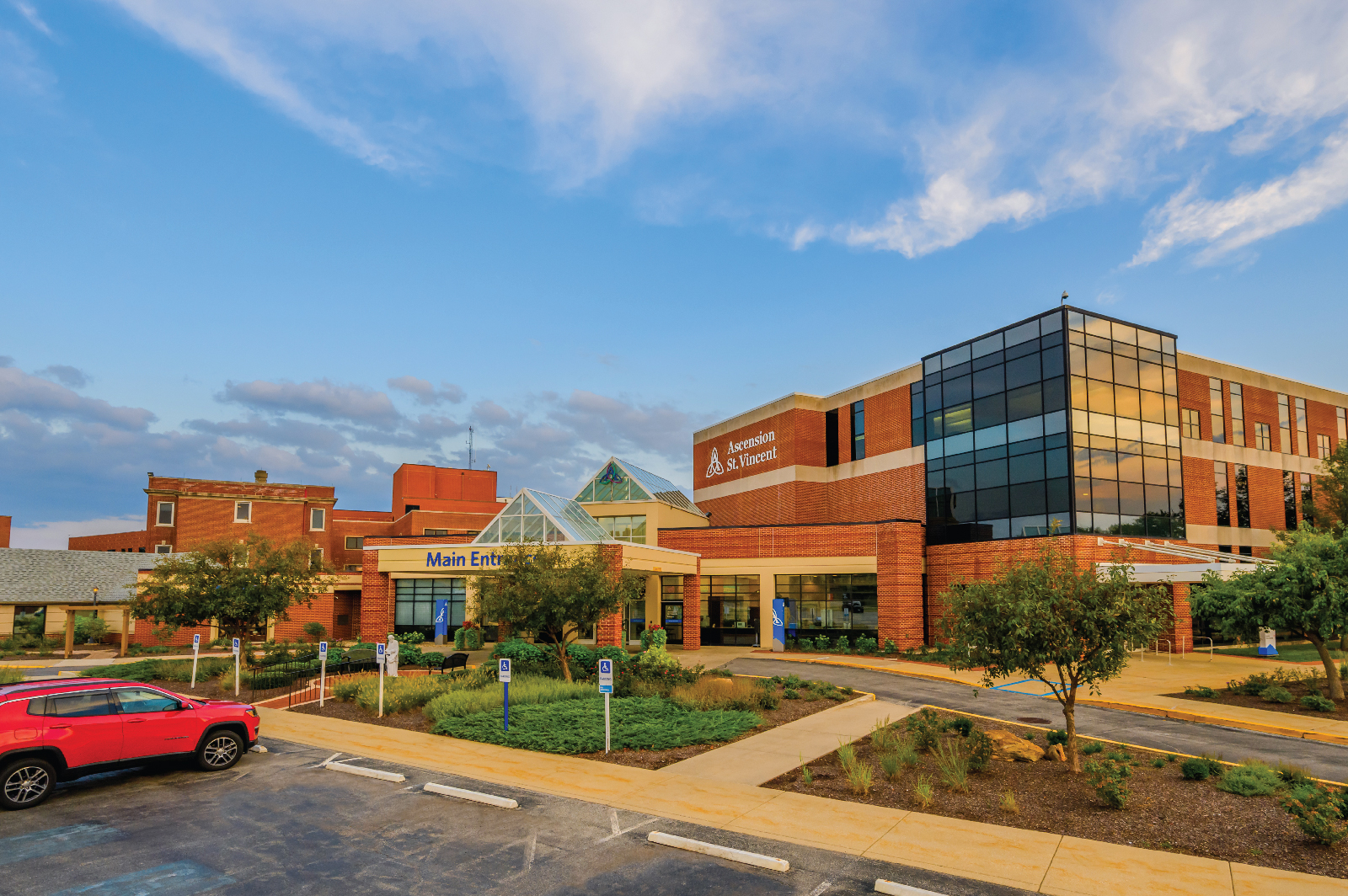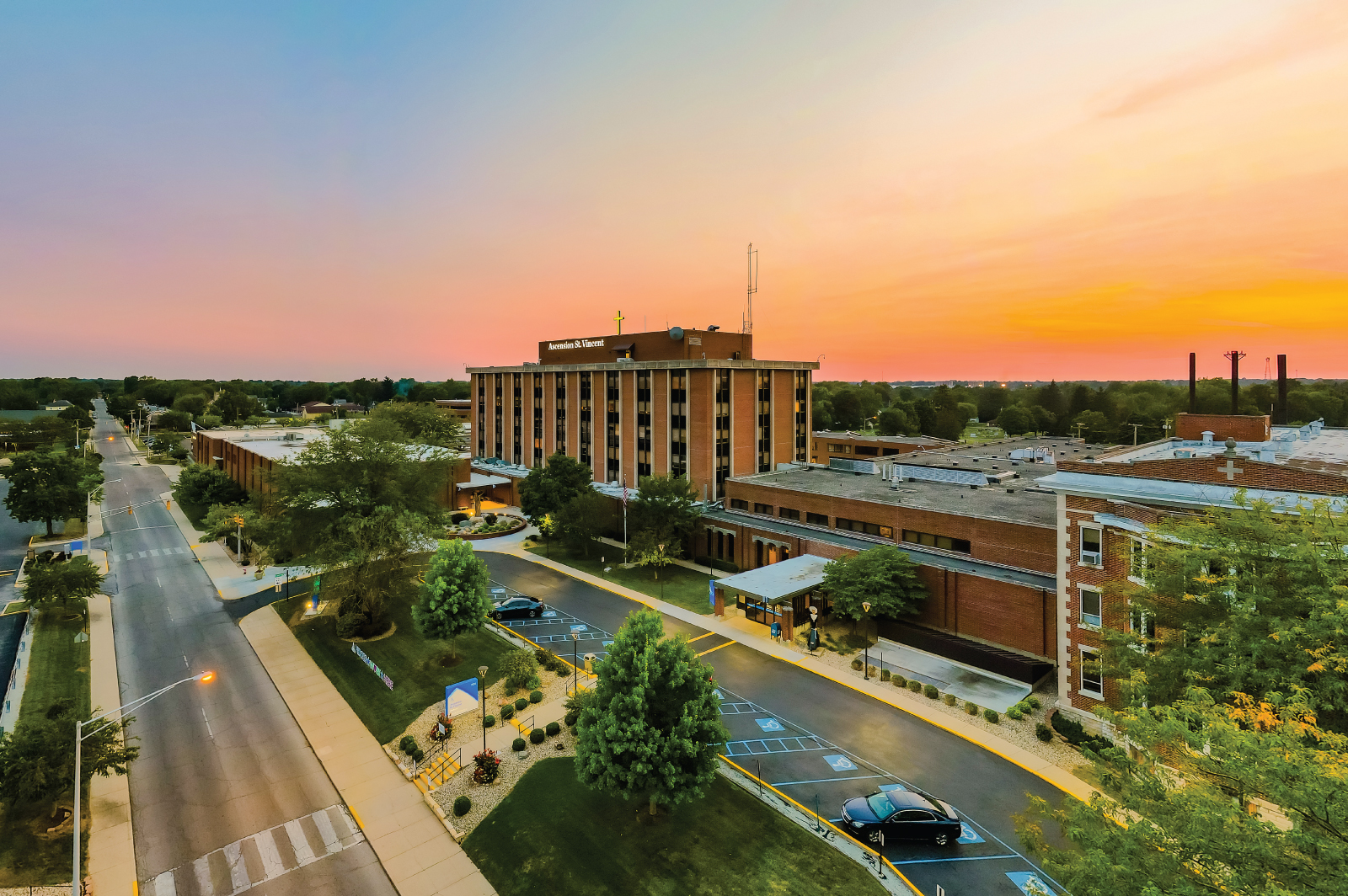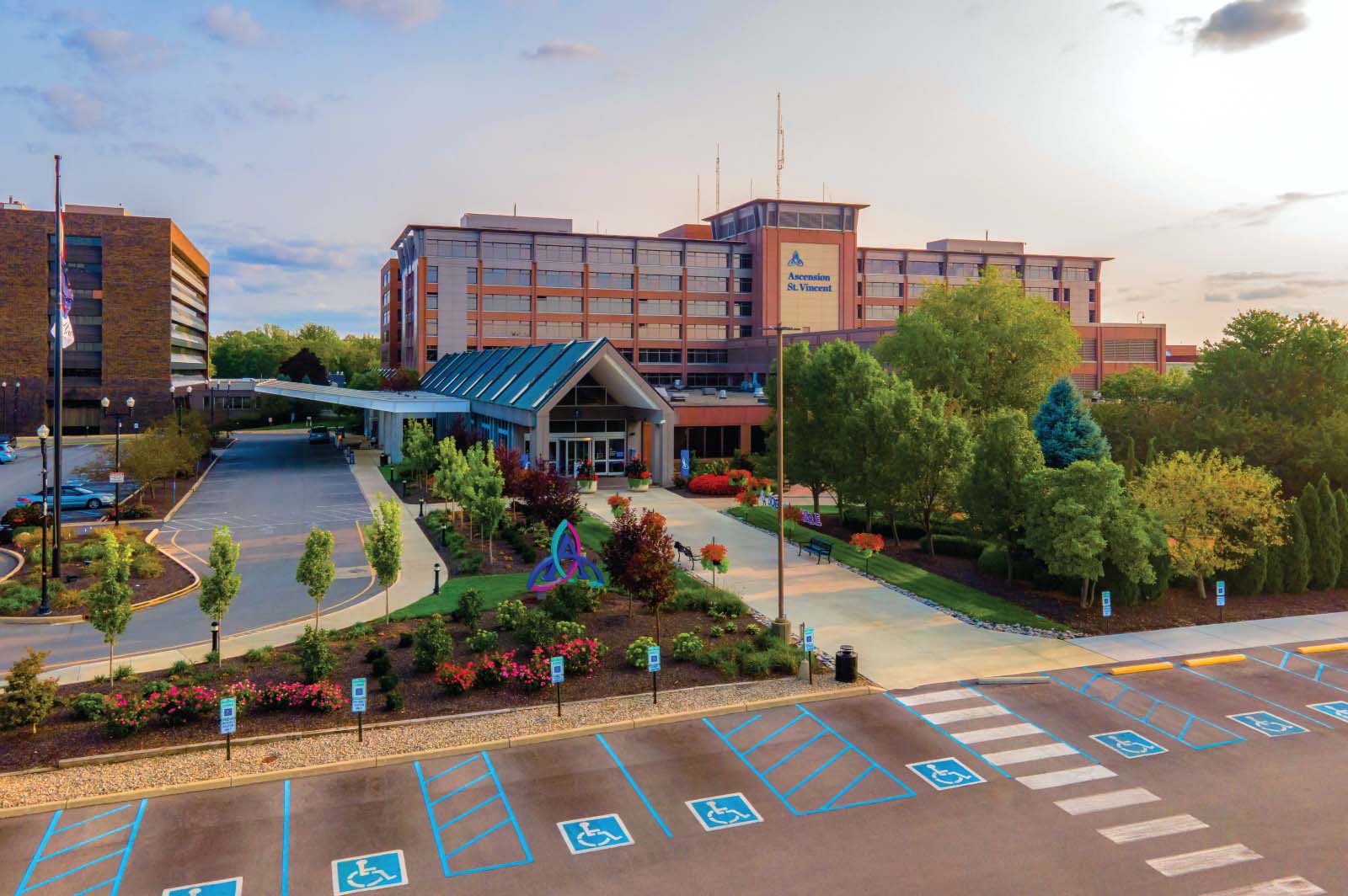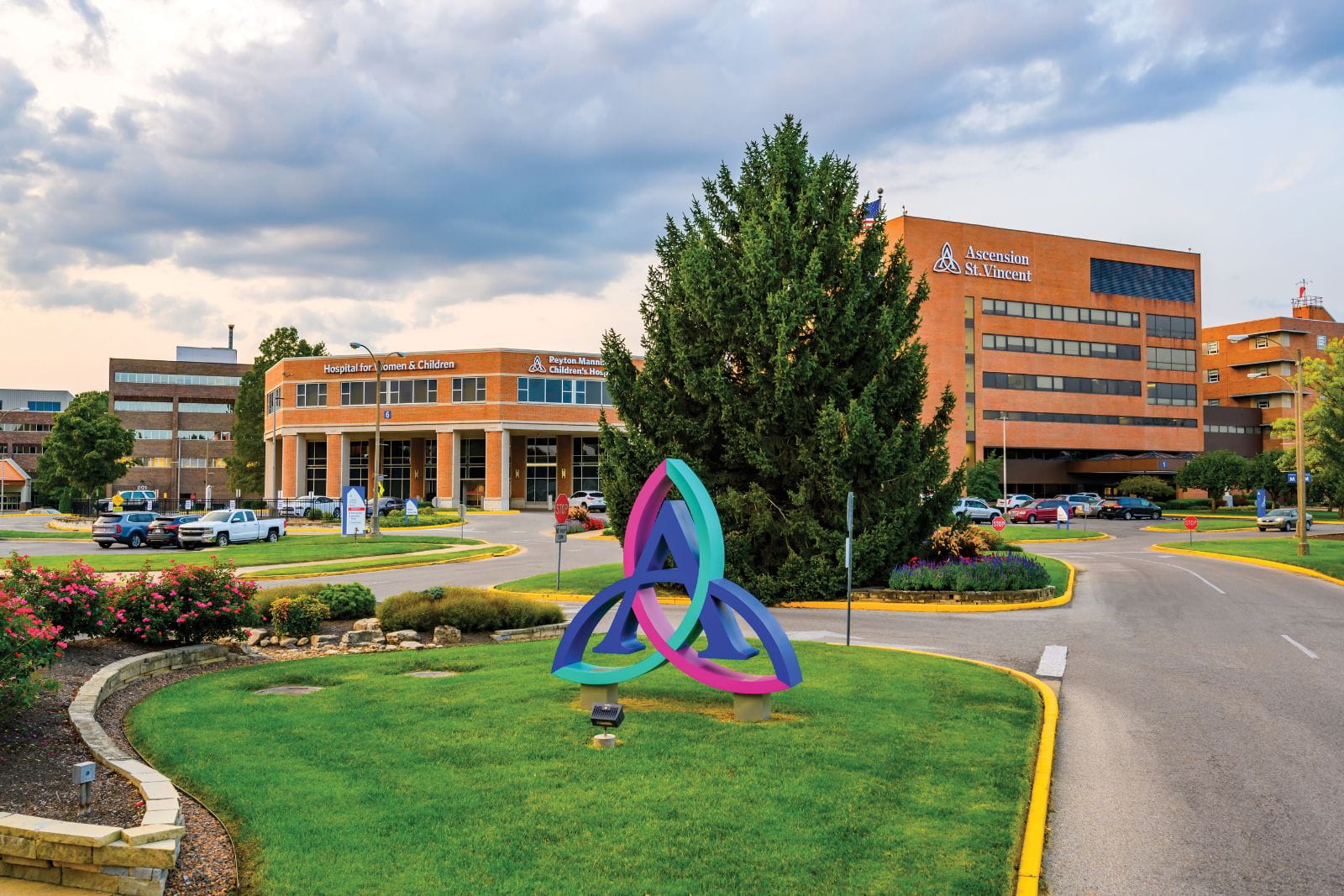
Advanced stroke care in Indianapolis
Neurologists and neurosurgeons at Ascension St. Vincent in Indiana, deliver stroke care and rehabilitation to help you recover after a stroke.

Creating comfort and connection at the Lucas Family Brain and Spine Hospital
The new Lucas Family Brain and Spine Hospital at Ascension St. Vincent in Indianapolis, IN, was thoughtfully designed to promote healing and reduce anxiety through intentional choices, while honoring heritage and community.
-
Frequently asked questions about stroke
How do I know if I'm having a stroke?
Stroke symptoms can come on suddenly. Call 911 and go to the nearest ER if you experience any of these stroke symptoms:- Sudden loss of balance
- Lost or unclear vision
- Face drooping or uneven smile
- Arm weakness
- Speech difficulty
-
What is a stroke?A stroke occurs when there is a disruption in the blood supply to the brain. This disruption can come from a blocked blood vessel in the brain or a blood vessel that ruptures and bleeds into the brain. When you are experiencing a stroke — every second counts. Call 911 and go to the nearest ER.
What should I do if I think someone else is having a stroke?
If you think someone is having a stroke, ask them to repeat a sentence back to you, smile at you, and raise both arms. If they have trouble with any of these tasks, call 911 right away. Stay with the person and note the time they began to have symptoms. This information can help the emergency room care team.
What is a mini-stroke, also called a transient ischemic attack (TIA)?
When someone experiences stroke symptoms that go away in a short period of time (typically less than an hour), it may be considered a TIA (transient ischemic attack.) When blood flow to the brain is interrupted for a short period (usually less than five minutes), it may be a sign of a future stroke. TIA is an emergency like stroke. If you experience signs of a stroke or TIA, don't wait to see if the symptoms go away.
How is stroke treated?
The sooner you get to the ER, the more options there may be for treatment. Medications and minimally invasive stroke interventions help prevent clots and dissolve blockages to restore blood flow to the brain. Endovascular procedures are used to repair a blood vessel from rupturing. Your doctors, nurses, and rehabilitation therapists help you recover after a stroke and help prevent a future stroke.
If you or a loved one are experiencing warning signs of a stroke — sudden loss of balance, lost or unclear vision, face drooping or uneven smile, arm weakness and speech difficulty — every second counts. Call 911 and go to the nearest ER.
*The Joint Commission is an independent accrediting organization. This accrediting body sets standards in healthcare to improve healthcare quality and safety. This recognition reflects our experience and advanced care to help improve stroke recovery outcomes.



